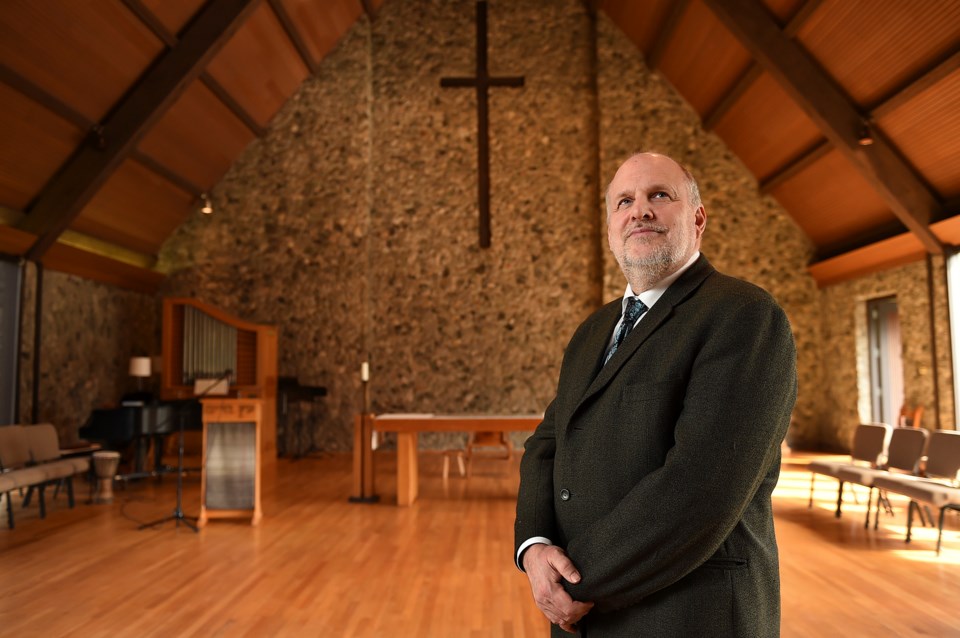Last week, before Easter, I , professor of New Testament and Early Christian Studies at the �鶹��ýӳ��School of Theology: Why do Christians, who commemorated Jesus’s crucifixion and resurrection last weekend, await a second coming?
Why didn’t the Christian messiah get it right the first time?
Maier met my impertinence with a thoughtful expression of what Jesus’s teachings mean — and how they can be interpreted differently by different Christians.
First of all, he says, the idea of messianic arrival common in Judaism and some other traditions does not necessarily translate the same to the Christian model. There are, he says, two significant streams in Christianity that differ on the meaning of the coming — and even on its definition.
“You might say that heaven on earth arrives when you practise Jesus’s ethics — love of neighbour, caring for the poor and so on — so that the whole tradition of messianic promise as represented by Jesus is not the kind of militaristic model that you might be able to find in the Hebrew Bible,” he says. “It’s a completely different sort of understanding that is centred in a particular kind of ethics.”
Maier cites Martin Luther King, whose argument was that the way to overcome racial violence is not by responding with violence but rather to resist non-violently and, if people resist non-violently, that will result in a transformation of the world.
But, I ask, does that mean that, when Jesus returns, everyone will live in a state of heaven on earth, or does it mean that when all humans live out the teachings of Jesus — bringing forth a world of peace, non-violence and love — Jesus will return?
“That’s a really good question and the answer to that question is yes,” says Maier. “Christians have disagreed about that. Some Christians have argued that when a worldwide reign of love is achieved, this then will be the expression of Christ’s reign on earth. This will embody the end of history that God intends in Jesus. That’s one point of view. The other point of view is that this reign of love will only come when God intervenes on history so as to bring about this reign of love by a divine coming… One is a kind of gradual transformation of creation and the other is kind of a divine intervention of creation. Christians have really disagreed about which one is the correct one to imagine.”
In the 19th century, Maier notes, a more liberal current of theology began to view the scriptures more poetic and symbolic than literal.
Maier shares a joke about a physicist and a priest on an airplane. “The physicist turns to the priest and says, ‘Isn’t it just, Jesus loves you this I know for the Bible tells me so?’ And the priest turns to the physicist, to the cosmologist, and says, ‘I don’t know. At the end of the day, isn’t it just twinkle, twinkle little star?’”
“We have to be really careful about flattening out language of religion into commonsensical equations,” says Maier. Even if we do not accept the Bible as the received, literal word of God, we should not dismiss the complexity of ideas and concepts it raises.
“Is there going to be a literal second coming? I think the point is not so much the second coming, as it were, so much as the belief in God’s promise that all of God’s creation, whatever creation is, is ultimately held lovingly in God’s hands,” says Maier, describing what he calls “a theology of hope.”
This will not be palatable to the people reading the Left Behind series of Revelations-inspired apocalyptic novels. But Revelations is the perfect example of poetic language that isn’t intended to be read literally, he says.
“It’s a language that prompts our imagination and invites us to use our imagination to seek to live out as faithfully as we can in the present,” Maier says. It is about prompting questions that inspire people to consider big ideas and to motivate us to live in the best way possible.
To talk about the second coming literally, and speculate what the world will look like the day after, would trivialize the topic, he says.
“What we’re really talking about here,” he says, “is the ultimate thing to which we should be steering our imagination. What is the ultimate thing to which we should be directing our lives? In that sense, then, you might say that the theology of hope is really a theology that asks us how we should live today, now. How we might practise the ultimate end of the world now, in our present moment, how we direct our lives, how we treat our family, how we treat money, how we treat the planet. To speak in those kind of ways is to make these questions more serious because that’s what we are all doing, whether we know it or not, one way or another, just by virtue of how we live our lives.”
The simplistic question I started with — why does Jesus have to come twice? — diminishes the complexity of the theology I am trying to get at.
“So all this language of the second coming, the messiahship of Jesus, the restoration of all creation.” Maier says, “The rubber hits the road, really, when we ask the kind of questions that ask us what ultimately is governing our lives.”
@Pat604Johnson



